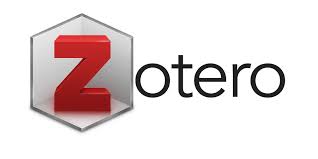Profil Pengajaran Guru Matematika Madrasah Tsanawiyah terhadap Pengelolaan Kelas pada Materi Bentuk Aljabar
DOI:
https://doi.org/10.29240/ja.v6i2.8654Keywords:
Teaching profile, Class management, Algebraic formAbstract
Effective classroom management can improve the quality of learning. However, there are still problems in teaching mathematics teachers related to classroom management, especially in teaching algebraic material. Therefore, this research aims to describe the teacher's teaching profile regarding mathematics classroom management in algebraic forms material. The type of research used was a descriptive study using a qualitative approach through data collection using observation, interview, and documentation techniques. The participants of this research were one mathematics teacher and 30 grade 9 students at MTsN 1 Kota Malang. Data analysis techniques were carried out by data reduction, data presentation, and drawing conclusions. The results of this research show that the teacher's teaching has implemented a student-centered learning approach and supports good classroom management. Teachers have been able to implement Technological Pedagogical and Content Knowledge (TPACK) in teaching and classroom management for effective learning. Therefore, the results of this research can contribute to knowledge regarding technology-based mathematics classroom management for students.
Downloads
References
Anwar, R., & Suryaman, M. (2015). Pemilihan Cerita Anak sebagai Bahan Ajar Membaca di Madrasah Tsanawiyah (MTs). Ling Tera, 2(2), 200–207. https://doi.org/10.21831/lt.v2i2.7379.
Aprilia, E. D., Nurfitriya, L., Ningrum, S. C., & Rofiki, I. (2024). Profil Pengajaran Guru Matematika terhadap Pengelolaan Kelas untuk Siswa SMP pada Materi Bilangan Berpangkat. Juring (Journal for Research in Mathematics Learning), 7(2), 171-184. http://dx.doi.org/10.24014/juring.v7i2.29140.
Aqib, Z. (2013). Model-Model, Media dan Strategi Pembelajaran Kontekstual (Inovatif). Yrama Widya.
Arslan, O. (2023). Investigating beginning mathematics teachers’ teacher identity development through emotion diaries. International Journal of Mathematical Education in Science and Technology, 54(8), 1541–1556. https://doi.org/https://doi.org/10.1080/0020739X.2023.2174055
Aulia, R., & Sontani, U. T. (2018). Pengelolaan Kelas sebagai Determinan terhadap Hasil Belajar. Jurnal Pendidikan Manajemen Perkantoran, 3(2), 9–17. https://doi.org/10.17509/jpm.v3i2.11759.
Azizah, A. N., Arrindha, N., Suwana, C. A., & Rofiki, I. (2024). Profil Pengelolaan Kelas Guru Matematika SMP dengan Sistem Blok pada Materi Teorema Pythagoras. Suska Journal of Mathematics Education, 10(1), 25-38. http://dx.doi.org/10.24014/sjme.v10i1.29146.
Baran, E., Bilici, S. C., Sari, A. A., & Tondeur, J. (2019). Investigating the impact of teacher education strategies on preservice teachers’ TPACK. British Journal of Educational Technology, 50(1), 357–370. https://doi.org/https://doi.org/10.1111/bjet.12565.
Baitiyah, B., Nafilah, A. K., & Mabnunah, M. (2024). Strategi Pengembangan Pendidikan Madrasah di Bangkalan (Sinergi Tradisi dan Modernitas). Jurnal Dimensi Pendidikan Dan Pembelajaran, 12(1), 186–198. https://doi.org/http://dx.doi.org/10.24269/dpp.v12i1.9773.
Bell, F. H. (1978). Teaching and Learning Mathematics: In Secondary Schools. W. C. Brown.
Burden, P. R. (2000). Powerful Classroom Management Strategies: Motivating Students to Learn. Corwin Press.
Chai, C. S., Koh, J. H. L., & Tsai, C.-C. (2013). A review of technological pedagogical content knowledge. Journal of Educational Technology & Society, 16(2), 31–51. http://www.jstor.org/stable/jeductechsoci.16.2.31
Chalim, S., Sujono, G., & Usman, F. (2020). Trend analysis based educator planning. Nazhruna: Jurnal Pendidikan Islam, 3(2), 273–284. https://doi.org/https://doi.org/10.31538/nzh.v3i2.683
Class, B. (2024). Teaching research methods in education: using the TPACK framework to reflect on praxis. International Journal of Research and Method in Education, 47(3), 288–308. https://doi.org/10.1080/1743727X.2023.2270426
Creswell, J. W., & Creswell, J. D. (2023). Research Design: Qualitative, Quantitative, and Mixed Methods Approaches. Sage Publications.
Davis, H. A., Summers, J. J., & Miller, L. M. (2012). An Interpersonal Approach To Classroom Management: Strategies For Improving Student Engagement. Corwin.
Emmer, E. T., & Stough, L. M. (2003). Classroom Management: A Critical Part Of Educational Psychology, With Implications For Teacher Education. Routledge.
Fahrucah, E., & Sugiarto, B. (2012). Pengembangan Lembar Kerja Siswa pada Pembelajaran Kimia SMA Kelas XI Pokok Bahasan Faktor-Faktor yang Mempengaruhi Laju Reaksi melalui Pendekatan Scaffolding. Unesa Journal of Chemical Education, 1(1), 92–96.
Fauzi, I., & Arisetyawan, A. (2020). Analisis Kesulitan Belajar Siswa pada Materi Geometri di Sekolah Dasar. Kreano: Jurnal Matematika Kreatif-Inovatif, 11(1), 27–35. https://doi.org/http://dx.doi.org/10.15294/kreano.v11i1.20726.
Febriani, A. S., Bernadine, N. A., Friyana, S. B. E., & Rofiki, I. (2024). Teaching profile of mathematics teachers on classroom management: A study on quadratic equations. Journal of Authentic Research on Mathematics Education (JARME), 6(1), 43-54. https://doi.org/10.37058/jarme.v6i1.8904.
Firdausy, F. H., Rofiki, I., Zulfaidany, S. N., & Mauladana, R. C. (2023). Profil Pengelolaan Kelas Guru Matematika SMA pada Materi Lingkaran. Juring (Journal for Research in Mathematics Learning), 6(4), 373-390. http://dx.doi.org/10.24014/juring.v6i4.26335.
Hofman, J. (2023). Classroom management and teacher emotions in secondary mathematics teaching: a qualitative video-based single case study. Education Inquiry, 14(3), 389–405. https://doi.org/https://doi.org/10.1080/20004508.2022.2028441.
Inah, E. N. (2015). Peran Komunikasi dalam Interaksi Guru dan Siswa. Al-TA’DIB: Jurnal Kajian Ilmu Kependidikan, 8(2), 150–167. https://core.ac.uk/download/pdf/231137475.pdf.
Koh, J. H. L. (2020). Three approaches for supporting faculty Technological Pedagogical Content Knowledge (TPACK) creation through instructional consultation. British Journal of Educational Technology, 51(6), 2529–2543. https://doi.org/https://doi.org/10.1111/bjet.12930.
König, J., Blömeke, S., Jentsch, A., Schlesinger, L., née Nehls, C. F., Musekamp, F., & Kaiser, G. (2021). The links between pedagogical competence, instructional quality, and mathematics achievement in the lower secondary classroom. Educational Studies in Mathematics, 107, 189–212. https://doi.org/10.1007/s10649-020-10021-0.
Lazarides, R., & Buchholz, J. (2019). Student-perceived teaching quality: How is it related to different achievement emotions in mathematics classrooms? Learning and Instruction, 61, 45–59. https://doi.org/https://doi.org/10.1016/j.learninstruc.2019.01.001.
Laia, H. T., & Harefa, D. (2021). Hubungan Kemampuan Pemecahan Masalah Matematis dengan Kemampuan Komunikasi Matematik Siswa. Aksara: Jurnal Ilmu Pendidikan Nonformal, 7(2), 463–474. https://doi.org/10.37905/aksara.7.2.463-474.2021.
Li, M., Noori, A. Q., & Li, Y. (2023). Development and validation of the secondary mathematics teachers’ TPACK scale: A study in the Chinese context. Eurasia Journal of Mathematics, Science and Technology Education, 19(11), em2350. https://doi.org/10.29333/ejmste/13671.
Miles, M. B., Huberman, A. M., & Saldaña, J. (2020). Qualitative Data Analysis: A Methods Sourcebook. Sage publications.
Minsih, & Diniarti, A. G. (2018). Peranan Guru dalam Pengelolaan Kelas. Jurmal Profesi Pendidikan Dasar, 5(1), 20–27. https://doi.org/https://doi.org/10.23917/ppd.v1i1.6144.
Mohammed, A., & Eric, S. (2022). Effect of lesson study continuous professional development on mathematics teachers’ pedagogical competence and perceptions of changes in their classroom practices. International Journal of Current Science Research and Review, 5(4), 987–996. https://doi.org/10.47191/ijcsrr/v5-i4-15.
Muhibah, S. (2020). Model Pengembangan Pendidikan Karakter melalui Pendidikan Agama di Perguruan Tinggi: Studi Kasus di Universitas Serang Raya. EDUKASI: Jurnal Penelitian Pendidikan Agama Dan Keagamaan, 18(1), 54–69. https://doi.org/10.32729/edukasi.v18i1.683.
Mukminin, M. N., Amelia, R. P., Haq, R. F., & Rofiki, I. (2023). Profil Pengajaran Guru Matematika terhadap Kemampuan Pengelolaan Kelas Berbasis Rencana Kegiatan Belajar Mengajar (RKBM) pada Materi Pertidaksamaan Rasional. Jurnal Tadris Matematika, 6(2), 291-310. https://doi.org/10.21274/jtm.2023.6.2.291-310.
Mutiaramses, Neviyarni, S., & Murni, I. (2021). Peran Guru dalam Pengelolaan Kelas terhadap Hasil Belajar Siswa Sekolah Dasar. Pendas: Jurnal Ilmiah Pendidikan Dasar, 6(1), 43–48. https://doi.org/10.54723/ejpgmi.v2i2.104.
Nguyen, L. T., Kanjug, I., Lowatcharin, G., Manakul, T., Poonpon, K., Sarakorn, W., Somabut, A., Srisawasdi, N., Traiyarach, S., & Tuamsuk, K. (2022). How teachers manage their classroom in the digital learning environment-experiences from the University Smart Learning Project. Heliyon, 8(10), e10817. https://doi.org/https://doi.org/10.1016/j.heliyon.2022.e10817.
Ningrum, D. E. A. F., Saefi, M., Nurrohman, E., & Rofiki, I. (2022). Evaluation on lesson plans of elementary pre-service teachers fostering hots within shulman’s framework. ELEMENTARY: Islamic Teacher Journal, 10(1), 159–174. https://doi.org/http://dx.doi.org/10.21043/elementary.v10i1.14461.
Oktaviana, E., & Yudha, C. B. (2022). Tecnological pedagogical content knowledge (TPACK) dalam pembelajaran abad ke-21. Social, Humanities, and Educational Studies (SHEs): Conference Series, 5(2), 57–64. https://doi.org/10.20961/shes.v5i2.58305.
Parnata, I., Maharani, L. P., Hidayat, L., Pramudia, T. E., & Rofiki, I. (2023). Profil Pengajaran Guru Matematika Berdasarkan Kemampuan Pengelolaan Kelas di Sekolah Menengah Pertama. Suska Journal of Mathematics Education, 9(1), 1–14. https://doi.org/http://dx.doi.org/10.24014/sjme.v9i1.19986.
Permatasari, B. A. D., & Kristiana, A. I. (2015). Analisis Kesulitan Siswa dalam Menyelesaikan Soal Materi Aljabar Siswa Kelas VIII SMP Negeri 2 Bangil. Kadikma, 6(2), 119–130.
Pratama, R. A., & Saregar, A. (2019). Pengembangan Lembar Kerja Peserta Didik (LKPD) Berbasis Scaffolding untuk Melatih Pemahaman Konsep. Indonesian Journal of Science and Mathematics Education, 2(1), 84–97. https://doi.org/10.24042/ijsme.v2i1.3975.
Reyes, M. R., Brackett, M. A., Rivers, S. E., White, M., & Salovey, P. (2012). Classroom emotional climate, student engagement, and academic achievement. Journal of Educational Psychology, 104(3), 700–712. https://doi.org/https://doi.org/10.1037/a0027268.
Rofiki, I. (2013). Profil Pemecahan Masalah Geometri Siswa Kelas Akselerasi SMP Negeri 1 Surabaya Ditinjau dari Tingkat Kemampuan Matematika. Prosiding Seminar Nasional Matematika Dan Aplikasinya, 1, 300–310.
Safitri, W. Y., Haryanto, H., & Rofiki, I. (2020). Integrasi Matematika, Nilai-Nilai Keislaman, dan Teknologi: Fenomena di Madrasah Tsanawiyah. Jurnal Tadris Matematika, 3(1), 89–104. https://doi.org/10.21274/jtm.2020.3.1.89-104.
Sanjaya, W. (2006). Pembelajaran dalam Implementasi Kurikulum Berbasis Kompetensi. Kencana.
Soedjadi, R. (1996). Diagnosis Kesulitan Siswa Sekolah Dasar dalam Belajar Matematika. Jurusan Matematika FMIPA IKIP.
Sri Rahayu. (2017). Technological Pedagogical Content Knowledge (TPACK): Integrasi ICT dalam Pembelajaran IPA Abad 21. Prosiding Seminar Nasional Pendidikan IPA IX, 9, 1–14. https://www.researchgate.net/publication/331986261.
Suciati, T. (2018). Meningkatkan Antusiasme Siswa terhadap Kegiatan Belajar dan Pembelajaran di Kelas melalui Program Literasi Membaca “Tunggu Aku”. INSANIA : Jurnal Pemikiran Alternatif Kependidikan, 23(2), 314–326. https://doi.org/10.24090/insania.v23i2.2303.
Umutlu, D. (2022). TPACK leveraged: A redesigned online educational technology course for STEM preservice teachers. Australasian Journal of Educational Technology, 38(3), 104–121. https://doi.org/10.14742/ajet.4773.
Warsitasari, W. D., & Rofiki, I. (2022). Efektivitas Media Pembelajaran Berbasis Android Financial Calculator: Bukti pada Pemecahan Masalah Matematis. Vygotsky: Jurnal pendidikan Matematika Dan Matematika, 4(2), 93–104. https://doi.org/https://doi.org/10.30736/voj.v4i2.568.
Warsono, S. (2016). Pengelolaan Kelas dalam Meningkatkan Belajar Siswa. Manajer Pendidikan: Jurnal Ilmiah Manajemen Pendidikan Program Pascasarjana, 10(5), 469–476.
Wati, A. R. Z., & Trihantoyo, S. (2020). Strategi Pengelolaan Kelas Unggulan dalam Meningkatkan Prestasi Belajar Siswa. Jurnal Dinamika Manajemen Pendidikan, 5(1), 46–57. https://doi.org/10.26740/jdmp.v5n1.p46-57.
Zayyadi, M., Supardi, L., & Misriyana, S. (2017). Pemanfaatan Teknologi Komputer sebagai Media Pembelajaran pada Guru Matematika. Jurnal Pengabdian Masyarakat Borneo, 1(2), 25–30. https://doi.org/10.35334/jpmb.v1i2.298.
Zhou, J., Bao, J., & He, R. (2023). Characteristics of good mathematics teaching in china: findings from classroom observations. International Journal of Science and Mathematics Education, 21(4), 1177–1196. https://doi.org/10.1007/s10763-022-10291-5.
Downloads
Published
Issue
Section
Citation Check
License
Copyright (c) 2024 Imam Rofiki

This work is licensed under a Creative Commons Attribution-NonCommercial-ShareAlike 4.0 International License.
Authors who publish with ARITHMETIC: Academic Journal of Math agree to the following terms:
- Authors retain copyright and grant the journal right of first publication with the work simultaneously licensed under a Creative Commons Attribution-NonCommercial-ShareAlike 4.0 International License (CC BY-NC-SA 4.0) that allows others to share the work with an acknowledgment of the work's authorship and initial publication in this journal.
- Authors are able to enter into separate, additional contractual arrangements for the non-exclusive distribution of the journal's published version of the work (e.g., post it to an institutional repository or publish it in a book), with an acknowledgment of its initial publication in this journal.
- Authors are permitted and encouraged to post their work online (e.g., in institutional repositories or on their website) prior to and during the submission process, as it can lead to productive exchanges, as well as earlier and greater citation of published work (See The Effect of Open Access).







